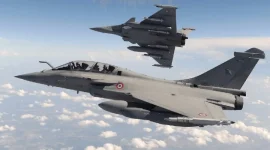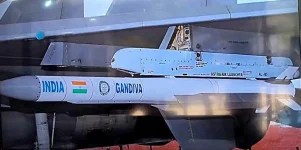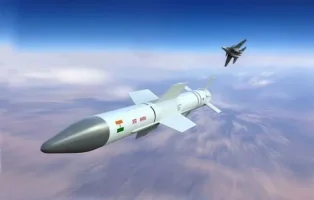- Views: 2K
- Replies: 9
In a major boost to India's indigenous fighter jet programs, General Electric (GE) and Hindustan Aeronautics Limited (HAL) are close to finalizing a deal for 99 F414-GE-INS6 engines.
The deal, estimated to be worth $1.5 billion, represents a significant increase from the 2010 agreement, reflecting both inflation and a substantial rise in the level of technology transfer (ToT) from 56% to 80%. This enhanced ToT is a key factor in the increased value, as it allows HAL to gain greater expertise in manufacturing advanced jet engines.
The agreement is anticipated to be finalized by March 2025, with the first engine rolling out of HAL's Bangalore facility by April 2028. GE Aviation has already provided an initial set of F414-GE-INS6 engines, which will power the Tejas MkII prototypes. Subsequent engines will be manufactured in India under the ToT arrangement.
This agreement has broader implications beyond the Tejas Mk2 program. The F414-GE-INS6 engines will also power 40 Advanced Medium Combat Aircraft (AMCA) MkI units and early prototypes of the Twin Engine Deck Based Fighter (TEDBF). This expands the total order to over 200 units by 2038-39, highlighting the long-term nature of this partnership and its significance for India's future air power.
The F414-GE-INS6 is the most powerful variant of the F414 series. While it shares the same thrust output as the standard F414 used in the F-18 E/F Super Hornet and the Korean KF-21 Block I, the INS6 incorporates key technological advancements. These include Full Authority Digital Electronic Control (FADEC) systems and enhanced safety features specifically designed for single-engine aircraft like the Tejas. These features ensure optimal performance and reliability across various operational conditions.
GE Aerospace's F414 engines are known for incorporating cutting-edge technologies that enhance performance, durability, and reduce life-cycle costs. This makes them an ideal choice for powering next-generation combat aircraft.
The unprecedented 80% ToT in this deal will significantly enhance HAL's capabilities in high-thrust jet engine production. This is crucial for India's pursuit of self-reliance in defence technology and its strategic goal of achieving technological sovereignty. The deal is expected to have a positive ripple effect on the Indian aerospace sector, fostering innovation and contributing to the development of a robust domestic defence industrial base.



